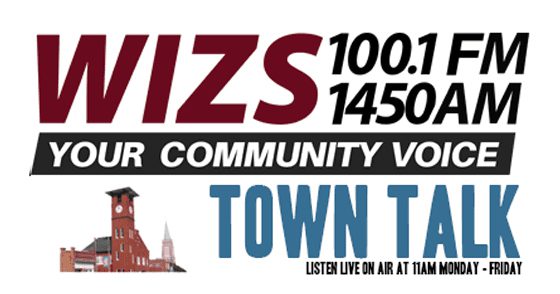Military veterans and their families may know about particular benefits that are available to them because of their service to the country, and those benefits extend to burial in a national cemetery.
Through perseverance, carefully documented research and the help of a genealogist, Phyllis Maynard is planning a springtime memorial service at Salisbury National Cemetery for her grandfather, who served during World War I.
The cemetery is the only one of its kind in the state that is currently open for burials and memorial services, according to Phillip Smyre, cemetery director. And, in fact, Maynard’s grandfather is taking the very last spot in the memorial section of the historic cemetery. Plans for an expansion are underway and that project could begin next year, Smyre told guest host Maynard and John C. Rose during the monthly installment of “Former Active Duty, Still Boots on the Ground segment of TownTalk.
Genealogist Kim Knight helped Maynard, herself a military veteran, locate information regarding her grandfather, Willie Maynard. He died under tragic circumstances when Maynard’s father was only 4 years old. And his service to his country was not acknowledged. Until now. Maynard said she and Smyre are planning a service to officially recognize her grandfather’s military service during warmer weather to accommodate elderly family members who want to attend.
Usually, cemetery officials can confirm a veteran’s service through social security numbers, army ID numbers or the discharge DD-214. But Maynard’s grandfather was not issued a social security number when he was born, so the process took a bit longer. Knight, the genealogist, first found a death certificate and then had to work back from that point to find information about his military service.
“He deserved to be memorialized with honors,” Knight said.
Smyre said it was a group effort, with Knight’s and Maynard’s input, along with the scheduling office in St. Louis, MO “to confirm that Mr. Maynard was indeed a member of the Armed Forces during WWI.”
No matter the need, Smyre said he and his outreach staff are ready to help family members who have questions or need assistance. Phone 704.636.2661 to learn more. Staff conduct ongoing outreach programs with local churches, community centers and veterans’ groups to get the word out about the services that are available to military veterans.
On land that once housed a prison during the Civil War, the Salisbury National Cemetery originally interred both Union and Confederate veterans; it had to continue to evolve, however, at the conclusion of World War I, then World War II, then Vietnam.
About two years ago, pre-placed crypts were placed to give more room for burials, Smyre said.
National cemeteries are held to slightly stricter “standards of upkeep” than state cemeteries, he said. “Headstones are set at a certain height, the grass, depending on the type is cut to a certain height,” he said, adding that there’s “a little bit more of a microscope on the national cemetery.”
State cemeteries do a great job, he said, but often don’t have the funding that a national cemetery has, which affects resources and staffing.
Sonya Leazer, administrative specialist at the cemetery, said a national cemetery will accept any eligible veteran, regardless of where they lived. State cemeteries require that a person live in the state for at least 10 years to be eligible for interment. National cemeteries accept interment of a spouse of the veteran at no cost to the family.
“They can be interred as long as they’re eligible,” Leazer said, and if the veteran is eligible, the spouse also is eligible. There are certain additional requirements for a child to be interred in the cemetery with parents.
CLICK PLAY!
